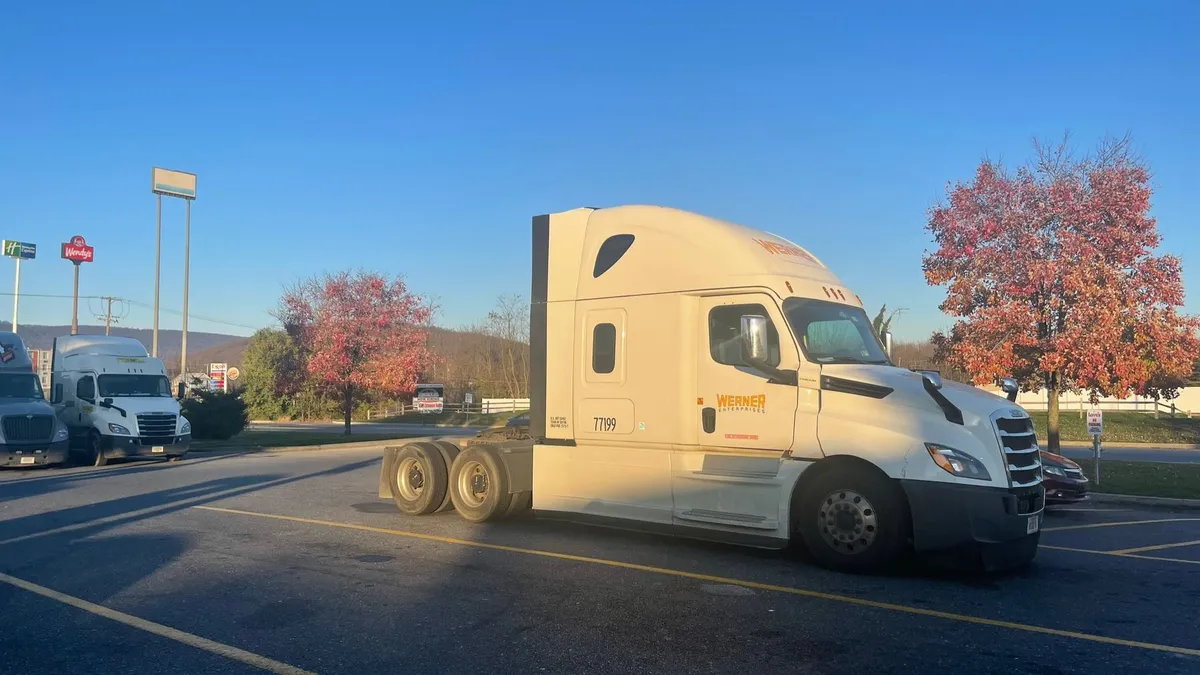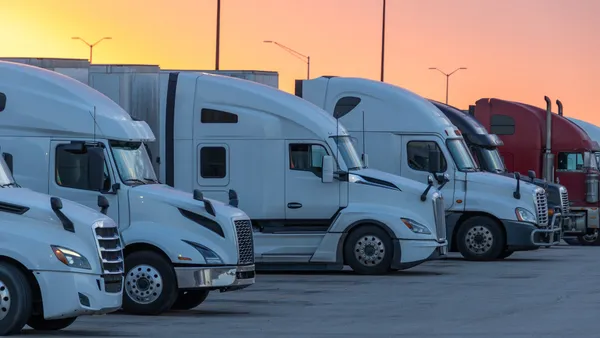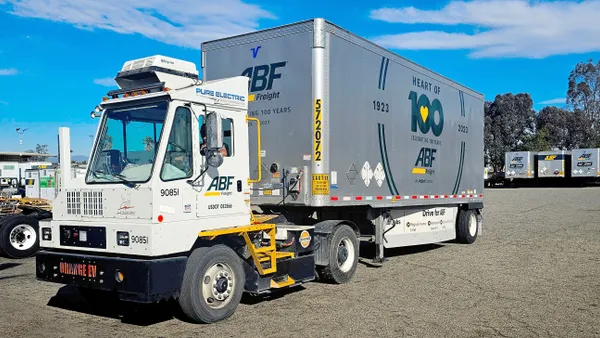Dive Brief:
- Werner Enterprises’ Q4 operating income dropped 10% YoY to $88.4 million amid a "lackluster truckload and logistics freight market,” the company noted in an earnings release.
- Truckload Transportation Services and Werner Logistics segments saw fourth quarter declines compared to a year ago, while fleet performance for its its Dedicated unit “experienced solid and steady freight demand,” the company said.
- “Clearly, fourth quarter was muted,” CEO Derek Leathers said on an earnings call Tuesday. “That sets up for possibly a little more muted drop. But realistically, the market we're in today is still a tough market. One-Way is holding up, I would say, better at this point than I would have expected.”
Dive Insight:
Werner finished 2022 with a 5% increase in operating income, a contrast to its 36% surge in 2021.
Werner pandemic profits shrink
| Year | Operating income, unaudited | Percent change YoY |
|---|---|---|
| 2022 | $323 million | 5% |
| 2021 | $309 million | 36% |
| 2020 | $227 million | 1% |
| 2019 | $225 million | 1% |
SOURCE: Werner quarterly earnings announcements
The drop signals a rapid fall in customer demand, as Werner and other companies acknowledge gloomy economic conditions in H1. But Werner may be buoyed by its discount retail customers: While 59% of its top 50 customers are retailers, 36% of those are discounters that perform well in economic downturns, the company noted in a November presentation.
“Over 60% of our trucks are in our durable dedicated fleet and one-third of that business is with large and successful discount retailers that are gaining share as consumers are becoming more value-conscious for their household spending,” Leathers said on the earnings call.
The CEO added that he’s encouraged by several factors regarding Werner’s performance, such as ongoing bid activities in Dedicated and the durability of the business in a weaker economy. "We're fortunate that less than 5% of our revenues are in the spot market," he said.
Similarly, Knight-Swift Transportation Holdings and Covenant Logistics also experienced muted peak seasons in Q4, with many carriers forecasting that difficulties would linger in early 2023.
Leathers said Werner expects the second half of 2023 to help it "get back to a world of inventory replenishment, peak freight movements, et cetera.”
“We expect that the 2023 freight market will be challenging in the first half and then gradually begin to show improvement in the second half as capacity exits the market and retail inventory resets to normalized levels,” he said.














